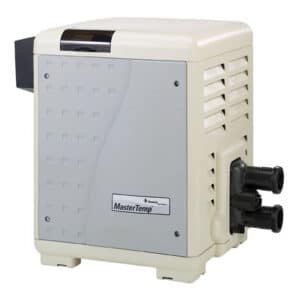Pool Heater Repair & Installation in Scottsdale
HEATER INSTALLATION & REPAIR
Are you looking to extend your swimming season? Do you want to make the most of your pool for you and your loved ones?
With expert pool heater installation and repair in Scottsdale from Aquaman, you can expand your swimming season to include the spring, fall, and even winter! When you want to get the most out of your pool, the experts at Aquaman are here to keep you swimming all year round.
Every one of our techs is a certified pool operator (CPO), and we are certified in all major heater brand repair and installation. If you already have a heater, we offer free, no-obligation pool heater inspections to make sure your unit is running safely and properly.
For all your pool heater service needs in Scottsdale, you can rely on Aquaman Pools for exceptional service and unmatched expertise.

Pool Heater Repair Services
To function properly, pool heaters require regular maintenance and service. Regular pool heater servicing can include:
- Inspecting burner flames
- Inspecting the wiring
- Cleaning the coils
- Cleaning the fan blades
- Inspecting refrigerant line insulation
- And more!
When pool heaters are well-maintained, they can last for quite a few years. But if they are left in disrepair, they’re bound to fail—and likely when it’s least convenient for you.
Has it been a while since you’ve had your pool heater inspected and serviced? Don’t hesitate to schedule your appointment today. We pride ourselves on offering expert pool heater maintenance and servicing to all our neighbors in Scottsdale.
When to call Aquaman Pools for heater repairs
Are you unsure of what the problem is with your pool heater? Don’t worry—and don’t swim in the cold any longer! Aquaman is here to help. Get in touch with us if you’re experiencing any of these common pool heater issues:
- Pool heater cycling on and off
- Pool heater not turning on at all
- Error codes on your pool heating unit
- Leaks around your pool heater
- Pool heater not turning off
- Black exhaust coming from pool heater
- Insufficient heating
All of these issues can have a host of causes that can be difficult to diagnose if you have limited experience with pool heaters. Don’t worry, though! Aquaman is here to keep you swimming with our trusted pool heater repair in Scottsdale.
Did you know that improper balance of your pool water chemistry and improper maintenance of your pool can drastically reduce the life or your heater and in some cases void the manufacturer’s warranty? Aquaman Pools takes special care with our customers pools and spas to ensure that your equipment always lasts as long as possible and performs at its optimum level.
Get in touch with us, and let us know about your pool heater issue. We’ll take it from there.
Pool Heater Installation & Replacement
The Valley of the Sun is the perfect place to extend your swimming season. With endless sun, there’s hardly a better place to reap the benefits of your backyard oasis. Like every resident knows, however, there can still be a chill in the air overnight during the cooler months.
Aquaman is here to help extend your Scottsdale swimming season into those cooler temps with professional pool heater installation.
The Installation Process
Choosing the right pool heater is crucial, and installing it correctly is even more important. Our process involves:
- Consultation: First we’ll work to understand your specific needs and assess your pool setup.
- Heater Selection: Zeroing in on the perfect pool heater isn’t easy. There are a lot of variables to consider, but our trained techs will have you set up with a list of options from our favorite brands like Hayward, Pentair, Jandy, and more.
- Installation: Our certified technicians will install your new pool heater and make sure that it integrates seamlessly with your existing pool setup.
- Testing: The work isn’t finished just yet. We test and make sure your pool heater is running at peak performance before wrapping up the job.
When you’re ready for professional pool installation in Scottsdale, Aquaman is your top choice every time.
Types of Pool Heaters
We know that our neighbors in Scottsdale all have unique situations and different needs. We offer electric, gas, and heat pump pool heater options so that you can make sure you get the heating setup that works best for you.
Our certified technicians will help you choose the pool heater that’s right for your pool and the conditions we were used to seeing in Scottsdale during the off-peak swimming months.
Electric Pool Heaters
Electric pool heaters often work well for smaller pools and spas. You don’t need a gas connection, and they tend to operate quickly. They aren’t as efficient as gas and heat pump options, and you will see significant energy costs if you run your electric pool heater often.
Pool Heat Pumps
Heat pumps are a great choice for heating your pool in Scottsdale. With our warmer days even in the spring and fall, heat pumps can efficiently use those higher air temperatures to heat your pool without running up your utility bill.
Natural Gas Pool Heaters
Gas units can provide optimum heat in all kinds of conditions. They’ll likely cost you more in energy than a heat pump, but not quite as much as an all-electric heating system. They’re a great choice if you have a bigger pool or if you intend to heat your pool during colder weather.
Commercial Pool Heater Services
Aquaman Pools also offers a complete line of commercial pool and spa heaters designed for extensive run times and higher flow rates required on commercial pool and spas.
We understand that when your heater is not functioning properly it can be very frustrating for you and your tenants. We have full-time staff on hand to address your pool and spa heater issues quickly and efficiently. Our main goal is to get you operational at a moment’s notice.
Call Aquaman Pools today for an in-depth check of your heater to ensure it is operating properly!
Contact Aquaman Pools for Pool Heater Services in Scottsdale, AZ
Ready to dive into a perfectly refreshing pool any time of the year? Let us handle the heat so you can get back to swimming.
Contact Aquaman Pools today for top-notch pool heater repair and installation services in Scottsdale.
Closer to Gilbert, AZ? Check out our pool heater repair services from Aquaman Pools in Gilbert.


